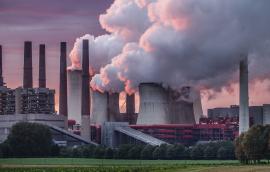The Third National Climate Assessment: Sound Science, Not Policy
The recently released National Climate Assessment documents the accelerating rate of climate change caused by human activities, leading to extensive and damaging impacts. The report represents scientific findings on the state of climate change in the United States, summarized in a way that is accessible to its intended audience: the president, members of Congress, and the American people, writes Ron Sass, fellow in global climate change. Will the U.S. Congress respond actively to the report rather than do nothing, as it has in the past? Sass is not sure, but writes that “it is up to the American people to inform themselves and then vote into power those who have the ability and desire to understand the seriousness of the changing climate and are willing to work together to confront it.”
Ronald L. Sass May 15, 2014








